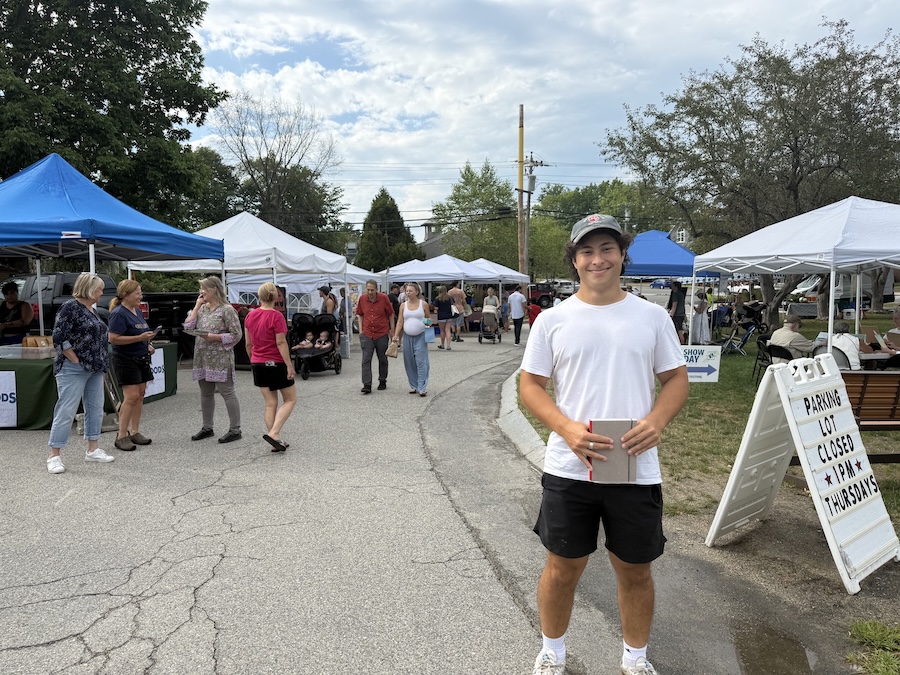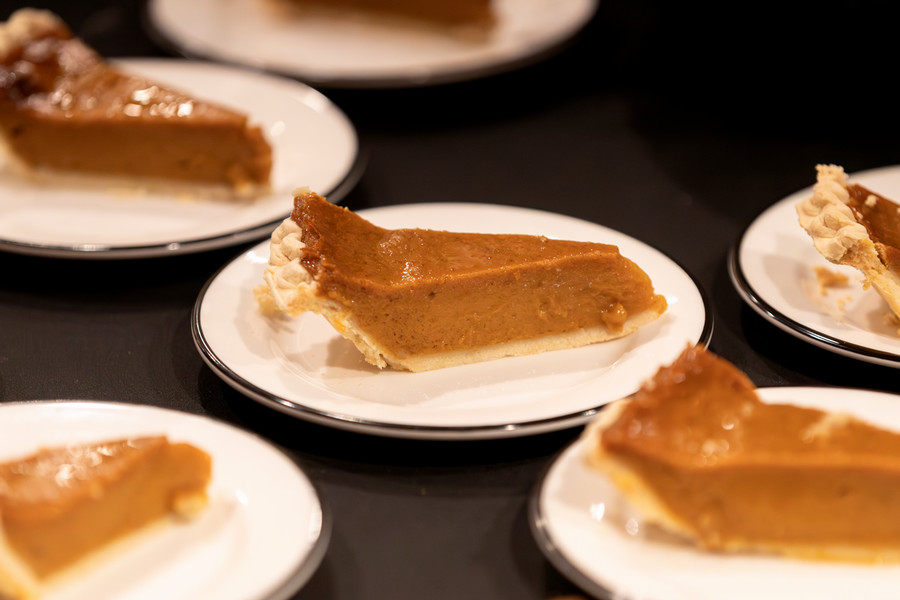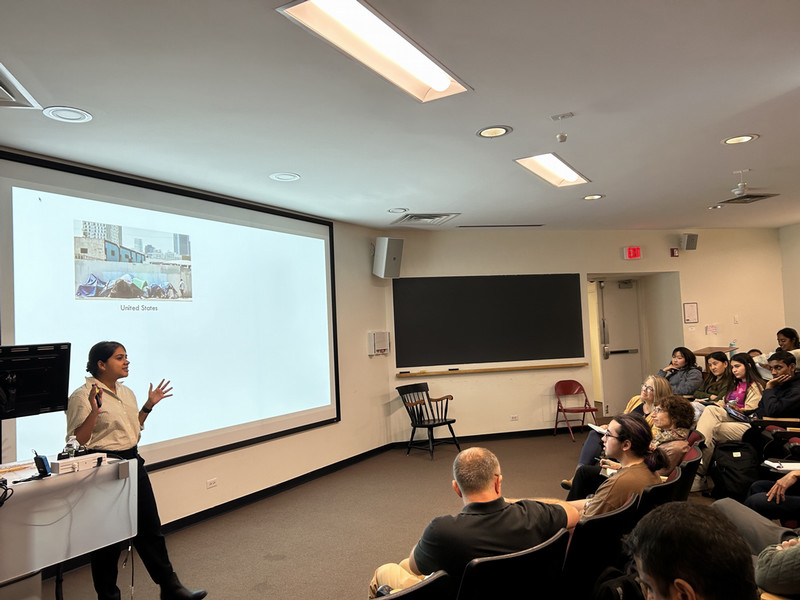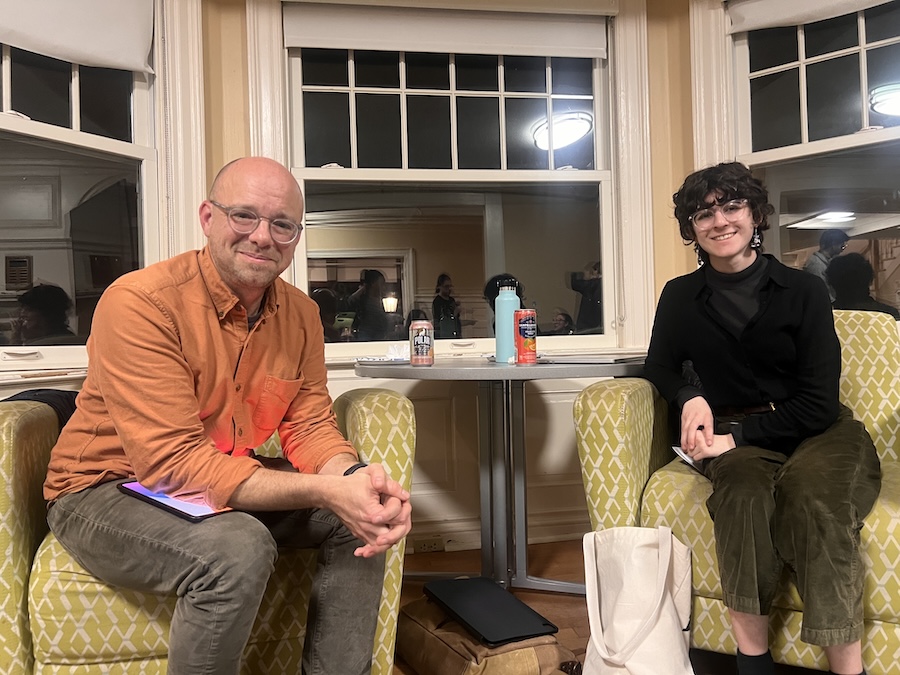Protecting Voting Rights for All
By Rebecca Goldfine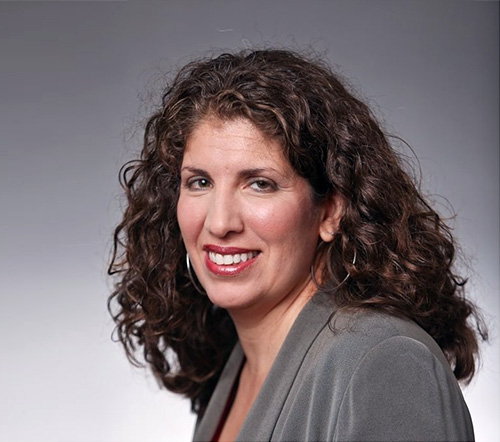
With a large portion of her audience in mind, Pérez made several appeals to students to get involved in bolstering our democracy by ensuring every vote is counted and everyone has equal and unhindered access to the polls.
"If your jam is environmental work, you're not going to meet your environmental agenda unless we have fair voting rules," she said. "If your issue is ending hunger, we're not going to solve that unless we have fair voting rules. If your issue is access to health care, we're not going to get that either."
Pérez's talk is part of a semester-long series organized by President Rose in the wake of the January 6 storming of the US capitol and efforts by former President Trump and his allies to overturn the election. "After the Insurrection: Conversations on Democracy" consists of virtual discussions with leading experts on subjects that relate to the current state of and future prospects for American democracy.
Pérez also encouraged students to work with her nonprofit, which hires (and pays) college interns and recent graduates to work alongside lawyers trying to change policy. The nonpartisan Brennan Center pursues litigation in court, conducts research, does media outreach, and works in statehouses across the country to protect state rights.
Responding to moderator George Isaacson's questions, and those submitted by the audience, Pérez shared her insights on a number of issues, including the recent election, which was profoundly shaped by the pandemic.
"We saw a ton of changes and advancements in the midst of the coronavirus, and I wonder how much of that was due to the fact that Americans who don’t usually worry about their right to vote suddenly had their right threatened. The kind of limited access, political manipulations, and hardships the coronavirus was inflicting on everybody is how many Black, brown, Asian, and Native communities have to vote day in and day out," she said.
"Americans have woken up to the idea that our vote is precious and fundamental, and that there are some politicians who don't want us voting. I see people caring and paying attention to voting issues in a way they haven't before." — Myrna Pérez
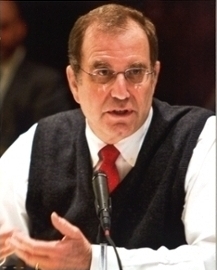
She also touched on two current bills that could alter elections going forward: the John Lewis Voting Rights Advancement Act in the Senate and HR1: For the People Act—the first resolution the House introduced this session.
Regarding HR1, "The Congress decided the issue of democracy would be its first issue," Pérez said. "It is a comprehensive omnibus bill, more than 700 pages. It deals with voting, gerrymandering, money in politics. What it tries to do is look at all the ways in which election administration problems have failed Americans and proposes solutions to them that come from best practices."
Included in the bill is the restoration of voting rights to people with criminal convictions—which Maine allows already—as well as same-day registration, automatic registration (two reforms already enacted in Maine), online registration, and prohibitions against discriminatory purges of voters from registration lists.
"While HR1 lifts up the floor for all of us, it will really provide protections for those who are the least able of surmounting administrative hassles and barriers," that is, for "our communities that are most on the margins," she said.
When Isaacson asked Pérez about the prospects of both pieces of legislation, she said, "I am a civil rights lawyer, which means I engage in the magical thinking that if I work long and hard enough I can bend the moral arc of the universe closer to justice." But she said they had a better chance of succeeding if members of Congress hear from their constituents.
"We have to tell our politicians in a very clear voice that discrimination in voting has no place in our elections, and we want them to protect our right to vote," she said. Only in this way, she added, will we surmount "entrenched partisan interest and an anxiety over the browning of America."
Pérez also addressed the major voting rights case from Arizona that was recently heard by the US Supreme Court, which could further weaken the Voting Rights Act. The Brennan Center filed an amicus brief in this case. She recalled a "shocking" moment when Justice Amy Coney Barrett asked a lawyer for the Arizona Republican Party what his interest was in changing the policy.
“Because it puts us at a competitive disadvantage relative to Democrats,” Michael A. Carvin answered, according to the New York Times. “Politics is a zero-sum game, and every extra vote they get through unlawful interpretations of Section 2 hurts us.”
Pérez said his response was telling of the kind of challenge voting rights activists face, in that those who are trying to put restrictions on democracy are not afraid of being upfront about their intentions. "We're going to be in a lot of trouble if we allow political parties to push, and states to enact, policies that make it harder for people to vote because they don't want some of their electorate voting," she said.
The next "After the Insurrection: Conversation on Democracy" event will feature historian Kathleen Belew, who will speak about the white power movement.
